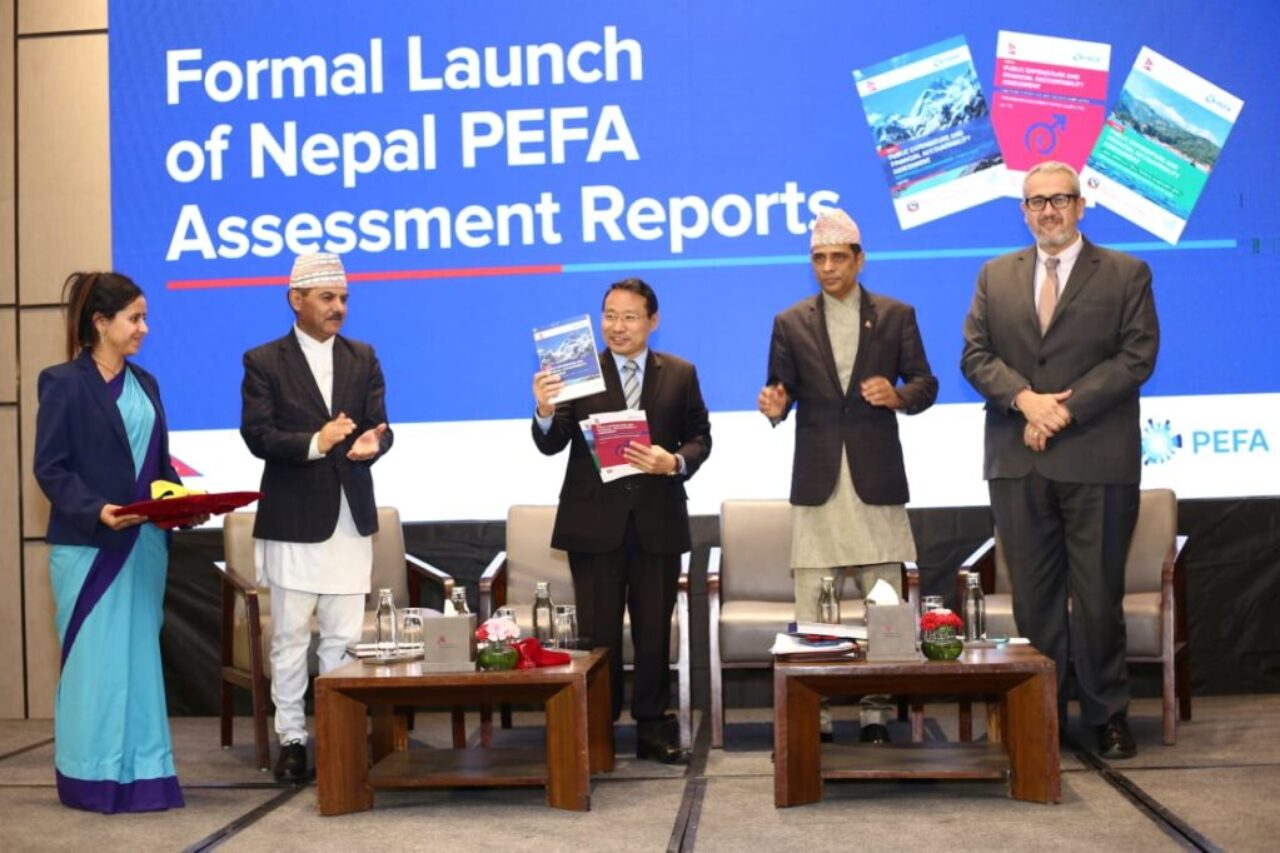NEPAL: Government, Development Partners Launch Public Expenditure and Financial Accountability Assessments

30th April 2024, Kathmandu
Nepal has a robust legislative and institutional framework for public financial management, but further reforms are needed to strengthen fiscal and budget outcomes to support green, resilient, and inclusive development, says the third Public Expenditure and Financial Accountability (PEFA) Performance Assessment Reports.
The PEFA Performance Assessment Reports were jointly launched today by the Government of Nepal with support from the Multi-Donor Trust Fund. The assessment is based on the internationally recognized PEFA Framework to assess the progress of Public Financial Management (PFM) across the government. Based on the assessments, the Government of Nepal will prepare a medium-term PFM Reform Strategy and Action Plan.
“Public financial management has the power to change people’s lives and livelihoods,” said Honorable Barsha Man Pun, Minister of Finance. Nepal is committed to establishing a strong and robust public finance system and transforming the public financial management landscape through rigorous reforms and adoption of digital governance.”
The Government of Nepal partnered with the Nepal Public Financial Management Multi-Donor Trust Fund supported by Australia; European Union; the United Kingdom’s Foreign, Commonwealth, and Development Office; Norway; Switzerland; and U.S. Agency for International Development and administered by the World Bank to conduct the assessments. The reports consist of the PFM Performance Assessment, Climate Responsive PFM Performance Assessment, and Gender Responsive PFM Performance Assessment. Nepal is the second country after Bhutan in South Asia to undertake PEFA Climate and PEFA Gender Assessments.
According to the PFM performance assessment, the government has deployed a range of information systems to enhance the efficiency of PFM. The adherence to international standards in the budget and accounts classification ensures comparability, accuracy, comprehensiveness, and transparency in financial information. Budgets are designed with a medium-term outlook, and the predictability of resource availability for spending units is at a high level. The fiscal transfers allocated to subnational governments exhibit transparency and adherence to established rules while the scope and coverage of both the internal and external audits are extensive.
“Nepal’s successful completion of the PEFA assessment demonstrates its commitment to sound financial management practices,” said Faris Hadad-Zervos, World Bank Country Director for Maldives, Nepal, and Sri Lanka. “Development partners, including the World Bank, are committed to supporting the next generation of public financial management reforms for Nepal’s green, resilient, and inclusive development.”
The assessment highlights the following areas for potential PFM reforms to achieve better fiscal and budgetary outcomes in the future:
- Restoring fiscal credibility through a sustainable medium-term expenditure framework, recalibration of fiscal rules, expenditure reprioritization, and risk management.
- Improving public investment efficiency by reducing inefficiencies and building climate-resilient infrastructure.
- Applying a climate and gender lens to fiscal decision-making to mainstream climate and gender considerations.
- Enhancing fiscal transparency and accountability by enforcing fiscal rules and promoting accountability.
“As the PEFA assessment demonstrates, some crucial elements center on fiscal discipline and its impact on service delivery. Better fiscal discipline is needed for more effective, inclusive, and accountable delivery of services,” said Karen Welch, Acting Mission Director of USAID Nepal. “We, the development partners, bring assistance that supports the government’s efforts across many sectors, like health and education, environmental preservation, and attention to marginalized groups. Sound PFM allows us to work together to better benefit the people of Nepal.”
The program was chaired by the Finance Secretary, Mr. Madhu Kumar Marasini. Chief Secretary, Dr. Baikuntha Aryal, Revenue Secretary, Dr. Ram Prasad Ghimire, and Financial Comptroller General, Mr. Hari Prasad Mainali expressed their views and reiterated their commitment for PFM reforms as indicated by this assessment. The event also included a panel discussion on the topic: “How can Nepal improve capital expenditure to achieve development outcomes?”.
The event was attended by high-level government officials, accountability institutions, and development partners involved in PFM, including climate and gender agencies.







